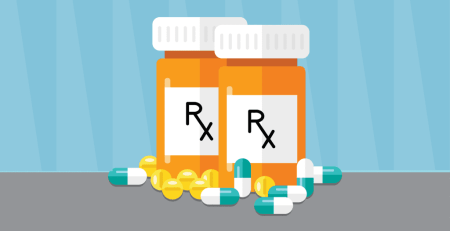Top 10 Most Prescribed Drugs in Canada and How They Work
Prescription drugs play a vital role in treating and managing various health conditions, but it’s essential to understand them and their mechanisms to ensure optimal health outcomes. In Canada, there are numerous prescription drugs, but some are more commonly prescribed than others. In this article, we will explore the top 10 most prescribed drugs in Canada, how they work and the importance of prescription drug adherence.
Top 10 Most Prescribed Drugs in Canada
- Atorvastatin (Lipitor): Used to lower cholesterol levels and reduce the risk of heart attack and stroke.
- Levothyroxine (Synthroid): Used to treat an underactive thyroid gland (hypothyroidism).
- Ramipril (Altace): Used to lower blood pressure and reduce the risk of heart attack and stroke.
- Amlodipine (Norvasc): Used to lower blood pressure and treat angina (chest pain).
- Metformin (Glucophage): Used to treat type 2 diabetes.
- Omeprazole (Prilosec): Used to treat heartburn and other stomach acid-related conditions.
- Atorvastatin and Amlodipine (Caduet): A combination drug used to lower blood pressure and cholesterol levels.
- Rosuvastatin (Crestor): Used to lower cholesterol levels and reduce the risk of heart attack and stroke.
- Ezetimibe (Ezetrol): Used to lower cholesterol levels.
- Pantoprazole (Pantoloc): Used to treat heartburn and other stomach acid-related conditions.
How Prescription Drugs Work
Prescription drugs work by interacting with specific receptors in the body to produce a therapeutic effect. There are various types of prescription drugs, including beta-blockers, diuretics, and statins. Some drugs work by blocking receptors, while others enhance them, and others inhibit or promote certain enzymatic processes.
It’s crucial to take prescription drugs as directed and adhere to the prescribed dosage to ensure optimal effectiveness. Some drugs may also have side effects or interact with other medications, making it crucial to inform your healthcare provider of any drugs you are taking.
The Importance of Prescription Drug Adherence
Prescription drug adherence refers to taking medication as prescribed by your healthcare provider. Adherence is crucial for optimal health outcomes and can improve symptoms and disease management. Non-adherence, on the other hand, can result in ineffective treatment, worsening symptoms, or even adverse health consequences.
There are numerous reasons why patients may not adhere to their prescribed drug regimen, such as forgetfulness, cost concerns, and side effects. However, there are various strategies to improve adherence, such as simplifying medication regimens and using reminder tools.
Prescription drugs are a crucial aspect of managing various health conditions, but it’s essential to understand them and their mechanisms to ensure optimal health outcomes. By understanding the top 10 most prescribed drugs in Canada, how prescription drugs work, and the importance of adherence, patients can take control of their health and improve their overall well-being.











